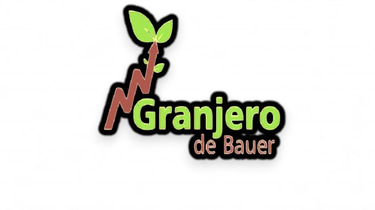The Sweet Story of Ylang Ylang: A Global Economic Gem and Nigeria's Untapped Opportunity
Stories behind the king of the day Tree, a strong natural fragrance along side its economic potential in the export market
9/3/20245 min lire


In the fragrant heart of the tropics, the air is often thick with the intoxicating scent of a tree whose flower has captivated the world for centuries—the ylang-ylang. Native to the tropical regions of Southeast Asia, particularly the Philippines, Indonesia, and Madagascar, this star-shaped yellow flower produces one of the most valuable essential oils in the world. Known for its heady, sweet fragrance, ylang-ylang oil has made a significant mark in the beauty, wellness, and perfume industries, driving economies in countries that grow and export it.
But could Nigeria, with its vast land and favorable climate, join this select group of countries? Could ylang-ylang become a new agricultural goldmine for the country, generating export revenues, creating jobs, and contributing to rural development? Let's dive into the fascinating story of ylang-ylang and explore how Nigeria could harness its potential.
The Origins of Ylang Ylang: A Flower of Global Importance
Ylang-ylang (Cananga odorata), often referred to as the "flower of flowers," has been revered for centuries for its luxurious and calming fragrance. Indigenous peoples in Southeast Asia used the flower for medicinal purposes, as a natural aphrodisiac, and even as part of spiritual rituals. Its essential oil, extracted through steam distillation, is a key ingredient in high-end perfumes and skincare products around the world.
In 1921, ylang-ylang cemented its place in the global fragrance industry when it was prominently featured in the iconic Chanel No. 5 perfume. Since then, it has become a must-have in luxury fragrances, aromatherapy, and natural skincare products. Ylang-ylang’s relaxing properties make it a popular ingredient in aromatherapy, where it is used to relieve stress, promote relaxation, and uplift the mood.
Countries like Madagascar, Comoros, and the Philippines are the primary producers of ylang-ylang essential oil, exporting millions of dollars’ worth of oil each year. The flower’s cultivation and processing have become a significant source of income for these nations, particularly in rural areas where jobs are often scarce.
Ylang Ylang's Importance to Global Economies
The global essential oil market is booming, driven by increasing consumer demand for natural and organic products. The wellness industry, in particular, has embraced ylang-ylang for its therapeutic benefits. From luxury perfumes and high-end skincare to aromatherapy oils, ylang-ylang is an essential commodity.
For countries like Madagascar and Comoros, ylang-ylang is a critical export crop. In Madagascar, the flower is grown primarily in rural areas, where the oil extraction process provides employment for thousands of farmers and workers. The country is one of the largest producers of ylang-ylang oil, exporting it to Europe, the United States, and Asia for use in high-end beauty and wellness products. In Comoros, ylang-ylang oil represents a significant percentage of the country's export earnings, making it one of the most valuable agricultural commodities.
In the global market, ylang-ylang oil fetches a high price, with premium grades selling for upwards of $150 per kilogram. The oil’s value increases further when processed and incorporated into branded luxury goods, making it a critical ingredient in the multi-billion-dollar perfume and wellness industries.
Nigeria’s Potential: Why Ylang Ylang Could Thrive
Nigeria is blessed with a tropical climate, fertile soil, and abundant rainfall, making it an ideal location for ylang-ylang cultivation. The regions in southern Nigeria, particularly Cross River, Rivers, Akwa Ibom, and parts of the Southwest, share similar climatic conditions to Madagascar and Comoros, where ylang-ylang thrives. The cultivation of ylang-ylang could provide Nigeria with a new agricultural export that would contribute to rural development and economic diversification. Here’s how Nigeria can start:
1. Establishing Ylang Ylang Orchards
Ylang-ylang trees take approximately 3-4 years to mature and begin producing flowers. Once established, the trees can produce flowers year-round, with peak harvest periods in the early mornings when the flowers are most fragrant. The flowers are then harvested by hand and distilled to produce the essential oil.
Setting up ylang-ylang orchards in regions like Cross River, where there is abundant rainfall and suitable temperatures, would be a low-cost and high-reward initiative. Local farmers could be trained in the cultivation and distillation process, creating jobs and boosting the local economy. With support from the government and private investors, Nigeria could position itself as a key player in the global essential oil market.
2. Developing Distillation Facilities
The essential oil extraction process requires steam distillation, which can be done on a small to medium scale with relatively low initial investment. Nigeria could set up regional distillation centers where farmers bring their harvested flowers to be processed into essential oil. These centers could be run cooperatively or by private enterprises, offering a new business avenue for local entrepreneurs.
3. Export and Market Potential
The global demand for ylang-ylang oil is robust, driven by its use in perfumes, skincare, and aromatherapy products. If Nigeria were to enter the ylang-ylang market, it could tap into existing demand from European and North American buyers who are always on the lookout for sustainably produced essential oils. With the right marketing and branding, Nigeria could position its ylang-ylang oil as a premium product, leveraging the country’s rich biodiversity and unique tropical climate.
Potential Earnings from Ylang Ylang Exports
The potential earnings from ylang-ylang oil exports are significant. Here’s a rough estimate of what Nigeria could earn:
- On average, one hectare of land can produce around 3,000 to 4,000 kg of ylang-ylang flowers per year.
- From this, roughly 30-40 kg of essential oil can be extracted through distillation, depending on the quality of the flowers and the distillation process.
- Premium ylang-ylang oil sells for around $150 to $250 per kilogram in international markets.
- This means that one hectare could yield between $4,500 and $10,000 annually from essential oil sales alone.
If Nigeria were to cultivate ylang-ylang on a large scale—say, 10,000 hectares—the country could potentially generate between $45 million and $100 million in export revenue annually. This figure could increase even further if Nigeria develops its own line of beauty or wellness products using ylang-ylang oil, adding value to the raw material.
Ylang Ylang and Rural Development
Beyond its economic potential, ylang-ylang cultivation could be a boon for rural communities in Nigeria. By creating new jobs in farming, distillation, and export logistics, ylang-ylang could provide much-needed income for rural households, reducing poverty and improving living standards. The flower’s year-round production cycle also ensures consistent work for farmers and laborers, unlike seasonal crops that provide only sporadic income.
Additionally, ylang-ylang farming aligns with global trends toward sustainable and organic agriculture. With growing consumer demand for natural products, Nigerian farmers could adopt environmentally friendly farming practices that preserve biodiversity and protect the country’s natural resources.
A Blooming Opportunity for Nigeria
Ylang-ylang, the "flower of flowers," represents a unique opportunity for Nigeria to diversify its agricultural sector and tap into the lucrative global market for essential oils. With the right investment in orchards, distillation facilities, and export infrastructure, Nigeria could become a major producer of ylang-ylang oil, generating significant revenue and creating jobs in rural areas.
As global demand for natural, ethically sourced products continues to rise, Nigeria’s potential to harness this tropical treasure is ripe for exploration. Could ylang-ylang be the next agricultural success story in Nigeria’s growing economy? If history and the current market are any indication, the answer could be a fragrant "yes."
Contact us
Expert farm standardization and agricultural practices consulting.
Quality
contact@granjeronigeria.org
+234-807035083460
© 2026. All rights reserved.
granjeronigeria@gmail.com
